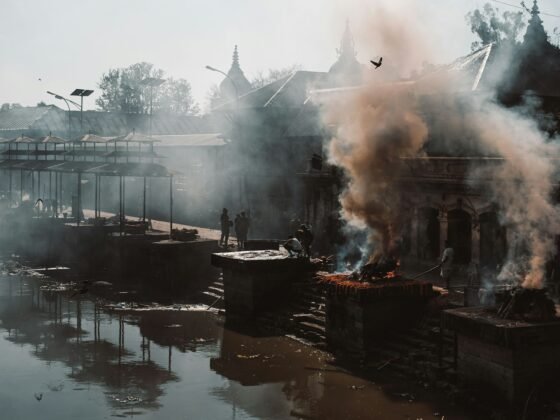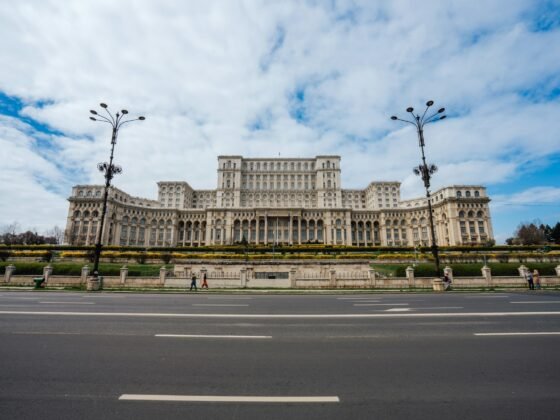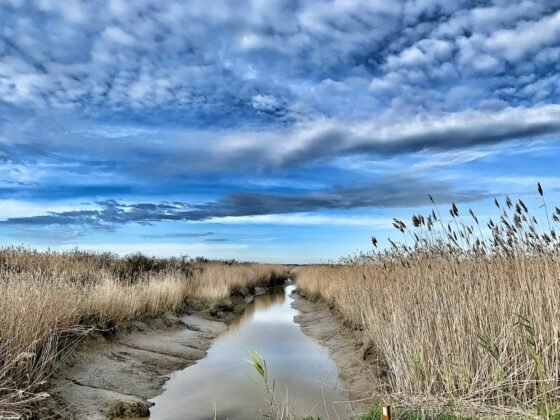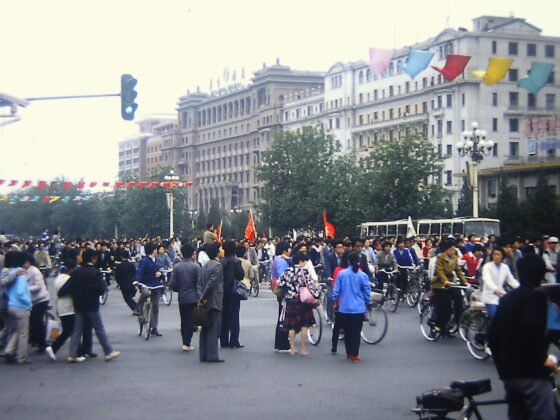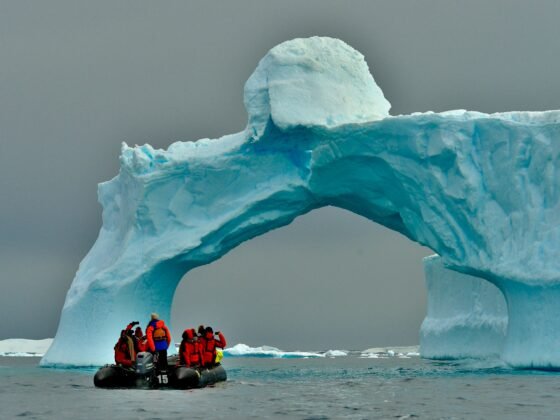By Carmen Borgia
Shortlisted in the PureTravel Writing Competition 2024
Prologue
Clap!
I open my hands and search my palms for the remains of the mosquito that’s been
harassing me. When I see no smudges on my skin, I huff out a sigh and pull my
knees into my chest, wrapping my corduroy jacket tighter around my bare legs.
It’s 10:28 pm on Wednesday, April 24th, 2024, and I’ve been sitting in the waiting
room at Guanajuato’s Policía Municipal Preventiva for over two hours. I don’t know it
yet, but another three will pass before the woman behind the glass wall calls me in to
discuss what happened.
For now, I sit, alternating my attention between my phone and the mosquitoes
buzzing in through the open windows around me. Thank god I brought my phone
charger with me, I think. Too bad I didn’t think to bring long pants.
I’m not sure why I’m still here. When I agreed to accompany the police officer to the
station a few hours ago, it was because I couldn’t bear the thought of staying in my
apartment alone. But my landlord, who told me I could crash in his spare room
tonight, must be home by now.
In any case, I remain, waiting to give a detailed account of the incident—though I’m
not sure what good it will do.
Suddenly, a revolutionary thought occurs to me: What if I don’t come back to this
city?
Part I
More times than I can remember, I’ve been told that I’m “living the dream.”
For nearly three years, I’ve gotten paid to pursue my passion of nonprofit storytelling
while traveling the world. For this, I am eternally, indescribably grateful.
But… I never planned for it to last this long.
Over the past two years, I’ve grappled with the question, Where can I call ‘Home’?
When I set off on my travels in September 2021, I was thrilled to trade routine for a
season of adventure and spontaneity. After spending my final college semesters
staying in and “social distancing,” I couldn’t wait to meet new people, explore Earth’s
wonders, and simply live again. It wasn’t my first solo escapade, but it was my first
one-way ticket.
First came a fall of backpacking in Europe, then half a season of visiting loved ones
in California, followed by almost five months of practicing Spanish in Central America. Constantly inspired by the stories of the starry-eyed backpackers around me, I never managed to stay in one place longer than six weeks. Then, about a year into solo-traveling, I started to long for deeper “roots,” and it wasn’t entirely the first time.
I’m having a similar feeling here in Fort Collins that I had in San Francisco in April, I
journaled from a coffee shop in Colorado, where I sat across the table from my twin
sister and her graduate school roommate. It was September, 2022 and I’d returned
to the U.S. to replace my laptop, which happened to be the perfect excuse to take a
break from hostel life and visit a familiar face.
Watching the friends I’m visiting live their lives— planning fun seasonal activities with
their own friends and frequenting their favorite coffee shops—I’m beginning to ache
again for my own ‘home base.’ A place where I can get around without using GPS,
where I get to sleep in my own bed, where I have my own group of friends, I typed
on my new keyboard. Here in Colorado, my heart did feel fuller, but this was my
sister’s life, not mine. I didn’t belong here forever… and I wasn’t quite sure where to
go.
Then, just as I was brainstorming where my new “home base” might be, I got a once-
in-a-lifetime opportunity to keep traveling. A friend of mine offered to add me to his
airline employee benefits, meaning I could fly on standby as far—and often—as I
wanted. He was leaving his job in a few months, though, so I needed to take this
chance now.
This really was the dream. How could I say no?
Thus, the backpacking continued.
Finally, after my second year of zig-zagging around the world, I figured it was truly
time to settle down and find that ever-elusive “home.” I wasn’t searching for my
forever place, just one where I could speak the local language, establish a routine,
and—most importantly—find a community.
I needed to feel like I belonged.
Still determined to become fluent in Spanish, I chose Mexico City. For three months,
I used social media, attended weekly group meditation workshops, and biked to the
park for bachata classes in an attempt to make friends. Despite my efforts, I never
found that feeling of home. So, on New Year’s Day of 2024, I set off again, vowing I
wouldn’t stop until I found a place I loved at first sight.
By the time I made it to Guanajuato in late February, I’d decided that this was it. The
past two months of exploring Mexico had been wonderful, but I was exhausted.
Either this city would be the place for me, or I’d retreat to Colorado again, my most
recent existential crisis in tow.
To my relief, the vibrant buildings, cobble-stone streets, and Florence-esque
architecture of Guanajuato took my breath away. Within my first afternoon of arriving, I was thrilled to declare: this city would be my home.
I admit, Guanajuato isn’t perfect… but there’s a lot to love! Yes, the vegan food
options here are worse than those of almost any city I’ve ever been to… but there’s
that one Japanese spot that’s really good. Sure, I’ve spent the past month wondering
if I’ll ever truly feel a deep connection with the friends I’ve made… but at least I’m
improving my Spanish every day! And yes, maybe I did just spend this morning
waving a bundle of sage around my apartment, attempting to dispel the “bad vibes”
I’ve been feeling since I got here… But nowhere is perfect.
I should also confess, my apartment isn’t flawless either. It’s a studio with hardly any
natural light, and a week into living there, I discovered that an entire civilization of
black mold had set up camp in one of the walls.
But… the apartment is mine. Guanajuato is the first place in years I’ve called “Home.” It could be worse.
At least I feel safe.
At least, I did feel safe…
Until this evening.
I blink back tears as the memory replays in my mind.
Music blasting from my laptop speakers. Texting a friend about our plans to catch the
sunset tonight. Skimming a request from my coworker, locking my phone, and lifting
my gaze back to the laptop on my desk. Then, unexpected movement behind me,
spotted in the blurred reflection of the flatscreen TV.
A man. In my apartment. Watching me.
Stomach dropping. Chest pounding. Spinning around in my chair, eyes wide.
Stumbling for words. Stammering out a shaky, “Who are you? What are you doing
here?!”
No response.
Standing up, backing away, clutching my laptop in front of my chest as a makeshift
shield. Suddenly, lying on my back against my mattress, kicking and screaming at
the man hovering over me, pressing his hands over my mouth. A vague sound of
glass crashing on the floor.
A moment later, wrestling in the kitchen, somehow only a meter away from the wide-
open front door. Still pushing his hands away from my face and calling out into the
sunny, empty alleyway, desperate for a neighbor to answer.
And then, just like that, standing alone in my apartment.
As soon as I was alone, I closed the door and slammed the lock across it before tip-
toeing back toward my desk, forcing myself to assess the damage of the room where
I’d been sitting peacefully less than five minutes earlier. Laptop still there. Phone still
there. Keys and wallet still there. What just happened?
Did I imagine that?
Nope, I confirmed as my eyes caught the glint of shiny, transparent shards scattered
beside the foot of my bed. I glanced up to the laptop sitting on my mattress,
expecting to see a spider web of fragments and holes where the screen should be,
but it appeared unscathed. Furrowing my eyebrows, I shifted my gaze back to the
floor, now perceiving glass molding of the words “Coca-Cola.” I’d never touched a
Coke bottle here in Guanajuato, let alone brought one into my apartment.
I would never know the story behind that bottle (which smelled merely of soda), nor
the wordless man who snuck it into my home. But I remained unrobbed and
physically uninjured.
It could’ve been worse.
Curled up beneath the harsh lights of the police station hours later, I consider what it
might mean if I don’t come back to Guanajuato next month. In two weeks, I’m
supposed to fly to the States for a work event (one of the rare occasions I get to see
my coworkers face-to-face). I have a round-trip flight to Washington, D.C., which
happens to be only a metro ride away from my hometown in Maryland.
What if I just pack up everything and… don’t board my return flight to Guanajuato in
three weeks? What if I stay in Maryland?
I’ve been expecting to live here until at least July, and I’ve told my landlord—as well
as everyone else I know—that I plan to return after that trip. But what if I don’t?
The flight is booked either way, I think. I can wait a few days to decide. But deep
down, I already know: the moment I stopped feeling safe in Guanajuato, it stopped
being my home.
Part II
Before I set off on my never-ending adventure, I had a place to call home. Most
people know it as the University of Maryland (UMD). However, growing up, UMD
wasn’t just a college to me. It, along with the surrounding town of College Park, was
my world.
It was a place of firsts. At four years old, I met my first childhood best friend in the
Green Room at CYC. We spent our lunchtimes trading snacks and our recesses
swinging back and forth on the monkey bars until our delicate palms calloused.
Then, while most college students were gone for the summers, I was learning how to
cartwheel at Gymkana’s summer camp or playing hide and seek in the chapel
garden with my Chinese Culture Camp friends.
The Bio-Psych building wasn’t a hall where I attended lectures on theories of
personality or aced exams on brain anatomy—at first. It was the place where my
siblings and I raced up and down the halls in rolling chairs on the days our dad
brought us to work. It was where we played Moshi Monsters on his spare desktops,
surrounded by posters of bowerbirds and maps of Australia, a country he frequently
visited for research, and the first place outside of College Park that I was destined to
one day, as a high school exchange student, call home.
In the meantime, during my occasional fall and spring visits to campus, I’d watch
through the window of our minivan as flocks of “grownups” wearing backpacks
crawled the grounds, forcing us to stop every few meters at crosswalks we’d
otherwise breeze through in the summer. I knew that someday I’d be one of them,
but until then, I belonged here at least as much as they did.
Now, I’m 24. Three weeks have passed since my flight back to Mexico from D.C.
took off without me. I’m still in College Park, for the fifth time since that fateful one-
way ticket to Europe, and my hometown has grown even more unrecognizable than
the last time I was here. I’ve just walked from North Campus—where the new, glass-
walled dining hall and surrounding eggshell dorms make no effort to blend in with the classic red brick around them—to the cluster of restaurants just off South campus, where the only bagel place I ever loved has its windows boarded up.
I can’t help but feel like all of this development, at the expense of the College Park I
grew up in, is personal. The major landmarks of my childhood are being wiped out to
create a more expensive, glamorous city that hardly resembles the town I’ve always
known.
You don’t belong here anymore, the shiny, imposing high-rises seem to hiss at me.
I stopped calling College Park “home” almost three years ago, and now, my
charming little college town unabashedly declares, it has outgrown me too.
Part III
It’s Saturday, June 8th, 2024.
Last night, I clicked through Google’s Street View of downtown College Park,
switching between images of 2024 and 2016 and mourning the erasure of my
childhood. Then, as I trailed my fingers under my eyes to catch escaping tears, a
disturbing realization dawned on me: somewhere in the world, a girl my age just
witnessed her entire hometown vanish.
This young woman would never visit any of her favorite breakfast spots again, nor
would she sit across from her sister in a coffee shop. She would never extend her
hand from the top of her head to the space above her colleague’s, teasing, “See? I’m
taller than you!”
She’d never again hear the laughter in her mother’s voice or feel the warmth of her
brother’s hug.
She’d never see them again, and she didn’t even get to say goodbye.
They died in an explosion in Gaza.1
So, naturally, here I am on Saturday afternoon, back in Washington, D.C. In my right
fist is a hand-written sign that reads, BOMBING KIDS IS NOT SELF DEFENSE. In
my left is the edge of a scarlet red banner featuring Sharpied names of thousands of
Palestinians who have been killed in the past eight months.2 I’ve just marched a lap
around the White House, and now I stand, bellowing with my entire body for this
woman I will never know—for her family, her classmates, her entire world. Startled at
the unfamiliarity of my own voice, I search my memory for another time I have
hollered this aggressively, this desperately.
I have screamed for my own life a single time, ever—exactly six and a half weeks
ago—but the memory doesn’t cross my mind.
Today, I’m screaming for the people in Palestine, of course. But am I also screaming
for me?
For years, I’ve been in search of a place to call home outside of the country that I
grew up in. This is why.
This is not my first protest.
“No country is perfect,” my fellow citizens often insist. “It could be worse.” They’re
right; I could have it worse: I likely will never be treated like I’m less worthy because
of the color of my skin—but I can’t say the same for many people I know.
If I’d been born a little farther south, with a little less money, I could be forced to give
birth after being raped, in the same country that’s actively trying to dismantle my sex
education.
I haven’t yet been murdered or lost a loved one to a mass shooting… but who’s to
say it won’t happen tomorrow?
Thank goodness the biggest threat to my hometown (other than bullets, of course) is
bulldozers, not bombs.
I’m one of the lucky ones, for now.
Maybe I can forgive my hometown for outgrowing me, but how can I forgive my
country for causing so much pain? How can I possibly belong here? I may not know
where “Home” is at this moment, but I know where it isn’t.
Part IV
I sit on the floor, slouching against the wall behind me as I watch pairs of sweaty
men in gym clothes and gis attempt to wrestle one another to the ground. It’s the
third Thursday of August, 2024, and I’m spending the evening in the same room I’ve
spent this time of the week all month.
I’m in Tbilisi, Georgia. Twice a month, I come to training straight from my volunteer
organization, where I help fellow expats package humanitarian aid for refugees from
Ukraine.
Today happens to be an off-week, which means I have spare time to catch up with
friends. A couple hours ago, I walked to class with my new Thai friend after meeting
her for coffee. I knew that I wouldn’t feel up for training when we left the cafe, but I
didn’t even consider spending these two hours of my life anywhere else.
Why did I figure a sweaty gym with poor air circulation in the middle of August would
be the best place for me right now? I silently ask myself as I inhale the stale, sweaty
air around me.
Even before Sensei calls me up to join their group photo—despite my lack of
participation—I hear the answer in my mind.
It’s simple: it’s 10pm on a Thursday. This is where I belong at 10pm on Thursdays.
With this thought, I feel prickling behind my eyes.
I think I’ve found Home.
Photo by Jorge Gardner on Unsplash




